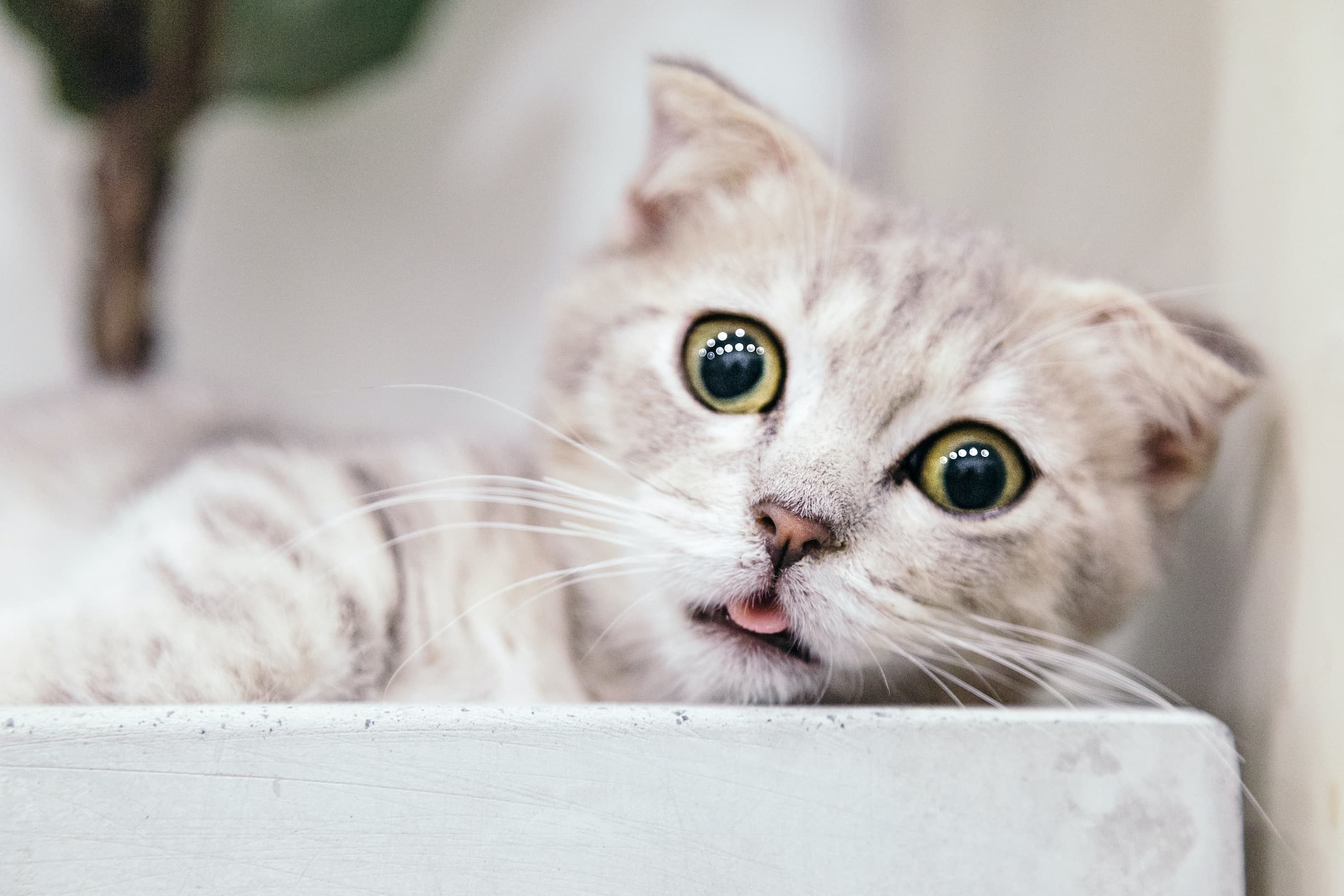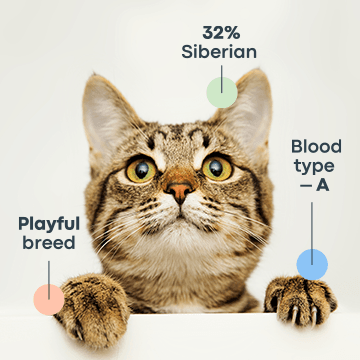It is well known that one of the cats' favorite activities is playing with laser pointers. It makes no difference to them whether the laser light is green, red, or any other color. Nothing else appears to matter once they focus on the laser dot; many cats will gladly spend hours chasing after the light.
But why do cats like laser pointers so much? Cats have a strong "prey drive" that causes them to seek out and kill prey aggressively, such as rodents, birds, and insects. When cats actively engage in what they believe to be predation, they feel the most excited and confident. This is why your cat stares at the small bugs crawling on the floor before pouncing on them or looks wistfully out the window at the birds in the bird feeder.
Your cat often assumes the movement of a laser light beam on the floor or wall to be prey trying to escape. While your indoor cat may not go outdoors regularly, that doesn't mean it has lost its innate hunting instincts. So, when they notice a moving laser light, they instinctively follow it and pounce on it to satisfy their prey drive.
Are Lasers Bad for Cats?
While playing with a laser pointer might improve a cat's happiness and help them lose weight, it can also frustrate and negatively impact your cat’s mental health. Because cats are inherently energetic hunters, they may become dissatisfied if they cannot finish the hunt by pouncing and catching the prey (or, in this case, the laser light).
Also, there is the possibility that while chasing the laser light around the room, your cat might run into a wall or a piece of furniture and injure itself or cause property damage. So, if you must use a laser pointer, do it only in a well-lit area where no one will be harmed.
Furthermore, shining a laser light into your cat's eyes may harm its eyesight or cause it to become permanently blind. Because the eye's natural defensive systems, such as the blink reflex, are ineffective against lasers with output above five milliwatts, short exposure presents a severe risk to the cat’s retina.
How Can Laser Pointers Benefit Cats?
Increased Physical Exercise
Housecats often lead inactive lifestyles, which may result in obesity, anxiety, and aggression towards other cats and humans. Obesity is a serious health issue that veterinarians often identify in their animal patients. And since domestic cats' daily routines often consist mainly of sleeping, you may need to encourage your cat to exercise more. As it pursues and bats at the moving laser light dot, your ordinarily inactive cat will get some activity and excitement from the laser pointer.
Mental Stimulation
The laser light will also stimulate your cat's brain. According to some experts, if a cat cannot hunt, track, pursue, pounce on, trap, or manipulate its prey, their mental health may suffer. Many cats spend their whole waking lives inside, with no fresh air, exercise, or cerebral stimulation. Laser pointers may benefit cats because they provide mental stimulation and help them avoid boredom.
Improves Bonding
A laser pointer is another tool that might help cats bond with other cats and their owners. Using a laser pointer, for example, to deter two cats from fighting in the same room is one approach to encouraging social contact between the felines. Each cat should have its laser pointer light, with the lights facing opposite directions so they don’t run into each other. Cat and laser pointer interactions can lead to fun and stimulating play sessions.
How to Use a Laser Pointer With Your Cat
Cats and laser pointers have become a classic combination for feline play and exercise. The purpose of laser pointer play is not to frustrate or disturb your cat. Instead, It will be an enjoyable opportunity to spend time with your cat while offering excellent exercise. Gradually introduce your cat to the laser pointer by pointing it at the ground, safely away from them. The distance must be modified based on the age and physical condition of the cat. When the cat starts focusing on the red dot, swiftly move the laser pointer across the room to simulate a mouse racing over the rug. Your cat will most likely get immediately intrigued by the toy's fast movements. Always offer your cat the opportunity to "catch" the laser pointer. They will always want to play if they believe they have a chance to "win" the game, and this will keep them returning for more.
What If My Cat Doesn’t Like Laser Pointers?
You're unlikely to have much luck with a laser pointer if you have a cat who isn't interested in chasing the light. You may encourage your cat to get up and walk around using electrical toys that stimulate mobility, such as remote-controlled mice. Teaser toys or wand toys with feathers that may be waved in the air to resemble a soaring bird may be more appealing to certain cats. Cats may like toys that produce bubbles that they pursue. If you don't provide your cat with a range of toys, you'll never know which one they like. Don't give up hope if you can't find the ideal toy. There is always that one toy that gets kittens playing, no matter your budget.
Conclusion
Playing with a laser pointer may bring fun and excitement to your cat's day, but keep safety in mind. To minimize mishaps, avoid shining the red laser light into your cat's eyes and supply a safe toy for them to "catch" after each game. Laser play is just one of various activities that may help foster a happy and healthy feline companion.
Frequently Asked Questions
Do laser pointers give cats anxiety?
Laser pointers won’t generally give them anxiety, though they may cause frustration. If done properly, laser play can encourage your cat to hunt by creating the appearance that it has already captured its prey.
Are lasers bad for cats' mental health?
According to some experts, if a cat cannot pursue their prey, their mental health may suffer. However, with proper use, laser pointers can provide mental stimulation and help them avoid boredom.
Do laser pointers give cats OCD?
If cats are teased with laser pointers for an extended period or suffer stress or irritation due to their use, they may develop obsessive-compulsive disorder (OCD).
Are laser pointers dangerous to cats?
Directing the laser pointer's light into the eyes of a cat might cause severe damage or even blindness. Never shine laser pointers directly into your cats’ eyes.





